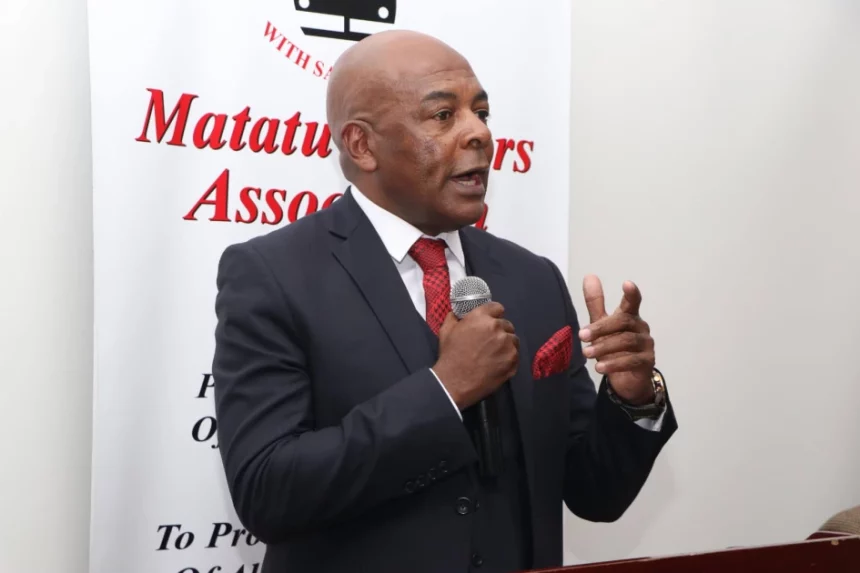Matatu Owners Association (MOA) has developed cold feet over plans mooted by the government through a parliamentary Bill to set bus fares as the country readies for the festivities-laden last quarter of the year.
Newly elected MOA Chairman Albert Karakacha has instead called for dialogue between proponents of the Bill, arguing that fare pricing is controlled by demand, setting a stage for a fight with the Kenya Kwanza administration.
Speaking to Citizen Digital, Mr Karakacha intimated that the move by the state would be an affront to their business’ operations, even as the critical service is left in the hands of the private sector.
“Matatu business which is liberalised, is heavily depended on demand and supply matrix and is also influenced by the cost of fuel, costs of spare parts, and the current high interest on loans and insurance,” Mr Karakacha told Citizen Digital.
He has however indicated the renewed push to weed out matatu cartels in what would appear that the hooded operators have tainted the sector’s reputation. He has further allayed fears that there is a shortage of long haul matatus, usually witnessed during festivities.
“We want to be prudent with issues registration and self regulation so that at the end of the day we weed out chances of having wrong people in our midst,” he said.
Early this month, Kimilili Member of Parliament Didmus Barasa introduced the National Transport and Safety Authority (Amendment) Bill, 2023 which seeks to amend the NTSA Act, 2012.
If considered, Transport CS Kipchumba Murkomen will have powers to put caps on bus fares for public service vehicles (PSVs), a move that would have State in war with the private sector.
Additionally, the Cabinet Secretary, by virtue of the powers sought in the Bill, will prescribe the mechanisms for reviewing fares charged by matatus as well as ensure that fares are reasonably fair.
At the moment, matatu operators set fare prices based on the route they ply, the weather, especially in Nairobi, distance covered, time of the day, changing fuel prices among other considerations.
“The NTSA Act is amended by inserting the following new subsection – the Cabinet Secretary may in consultation with the Authority make regulations prescribing the maximum and minimum fares payable by passengers in the public service vehicles within the country,” the Bill seen by Citizen Digital reads in part.
Lawmaker Barasa intimated that the new changes to the law will serve to protect commuters from exorbitant fare increases by matatu operators.
The Bill was introduced in response to an increase in the cost of fuel, which occurred after the State reinstated VAT on petroleum products to 16%.
As a result, MOA in July announced new rates for fares. Commuters from Nairobi to Western towns including Kakamega, Bungoma, Busia, Vihiga, and Mumias have, as a result, been paying between Sh200-300 more to travel into the city, translating to Sh1,500 per person on average.
Passengers from the capital to Nyanza counties of Homa Bay, Migori and Kisii are now paying between Sh100-Sh200 more to Nairobi, according to MOA’s price review.



